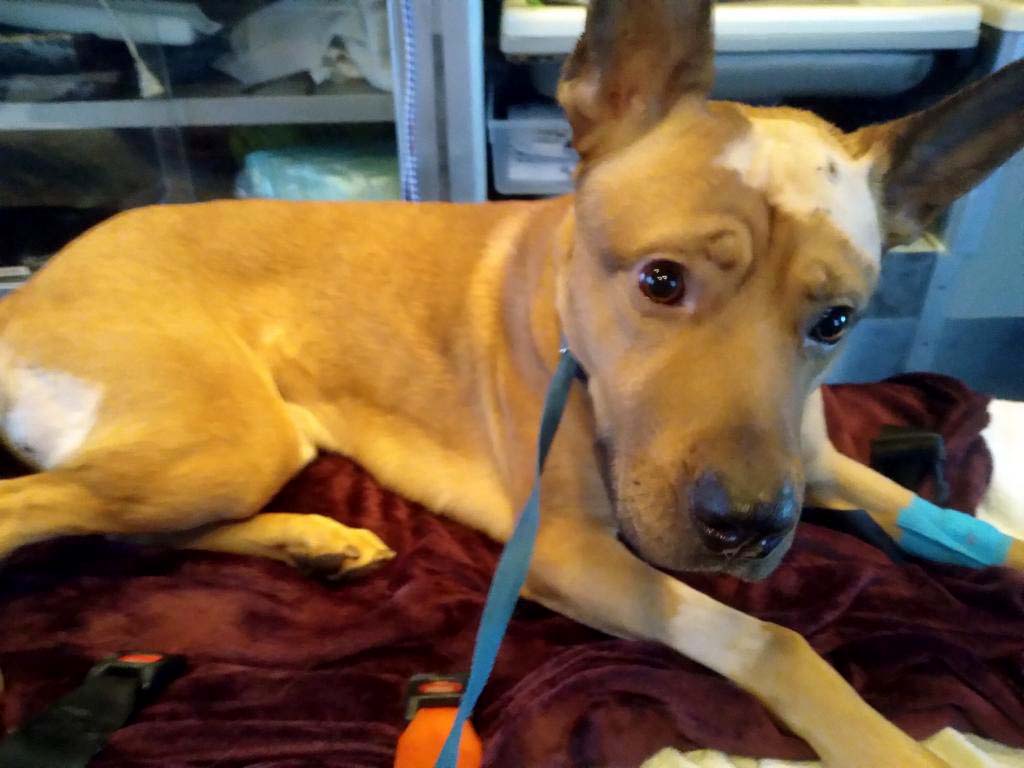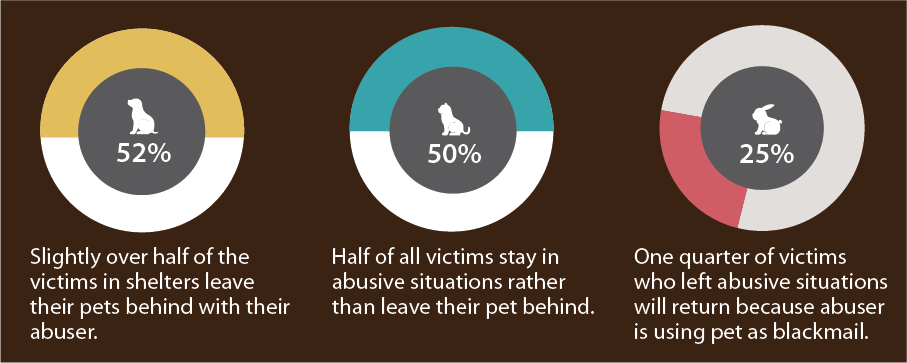The Correlation Between Domestic Violence and Animal Abuse
This is Clyde. Clyde is a sweet, lovable 3-year-old Shepard mix. As an emotional support dog, his 21-year-old owner describes him as “her rock”. And, like most pet owners, she (the owner) considers Clyde a true family member and would do anything to protect him.
But despite her best effort, both the owner and Clyde found themselves victims of an horrific act of domestic violence–an attempted murder-suicide perpetrated by the female victim’s male partner. Clyde was shot twice, once in the head and once in the hip. His owner was also shot twice, both times in the face. Both survived. As a matter of fact, as of this writing, they are both expected to make near full recoveries.
To describe their survival as a miracle would be a gross understatement. Whether you believe it’s due to pure luck, divine intervention, or inexplicable forces of the universe, there is no doubt that these two victims are extremely fortunate to be alive. And although what happened in the end was miraculous, the fact that it happened at all is not the least bit surprising.
The direct link between domestic violence against humans(the vast majority being women and children) and animal abuse is well established. According to the American Society for the Prevention of Cruelty to Animals (ASPCA), 71%1 of pet-owning women entering domestic violence shelters reported that the abuser threatened, harmed, or killed the family pet.
Pets are a source of comfort, support, and companionship for their owners, which is obvious when you consider that 70%2 of U.S. housholds (90.5 million homes) own a pet. Therefore is it not difficult to surmise that in those pet households that experience domestic abuse, the abuser will harm, kill or thereaten animal abuse as a form of ’emotional blackmail’ againist their victims. Abusers will use violence against a beloved pet to maintain control, compliance, and silence over their victims. 50%3 of domestic abuse victims are reported to with stay in the abusive situation or not report the abuse for fear of a pet being harmed.
Victims of domestic violence may be reluctant to disclose abuse that they have experienced but may be more willing to seek help for their pets, which can open the door for ensuring their own safety and well-being. However, one of the main reasons that victims with pets don’t seek help is because only 12%-14%4 of domestic violence shelters nationwide are able to accommodate victims’ pets. And of the 52%5 of victims who enter shelters without their pet, just over half of them return out of grave concern for the safety and well-being of that pet.
Because of increasing awareness, more is being done to support pets in domestic violence situations. For example Red Rover, an non-profit organization, assists animals out of crisis. Their domestic violence assistance resources include Safe Escape Grants to help survivors and pets find safety from abuse and Safe Housing Grants that help shelters provide a safe space for pets. Additionally Red Rover has partnered with Purina and created the Purple Leash Project whose goal is to increase the number of pet-friendly domestic violence shelters nationwide.
If you find yourself and/or your pet victims of domestic abuse there is help available. For help or further information, please contact the following:
American Humane Association – 330.792.9900
National Domestic Violence Hotline: 1.800.799.SAFE (7233)
National Child Abuse Hotline: 1.800.4-A-CHILD (800.422.4453)
National Sexual Assult Hotline: 1.800.656.HOPE (4673)
Red Rover Organization 916.429.2457, www.redrover.org
1. National Coalition Against Domestic Violence, (https://www.thehotline.org) and American Society for the Prevention of Cruelty to Animals (ASPCA)
2. 2021-2022APPA National Pet Owners Survey, (https://www.americanpetproducts.org/pubs_survey.asp)
3. Roguski, Michael, Pets as Pawns: The Co-existence of Animal Cruelty and Family Violence and Carlisle-Frank, Frand & Nielsen (2004): Selective Battering of Family Pet
4.National Coalition Against Domestic Violence, (https://www.thehotline.org)
5.American Society for the Prevention of Cruelty to Animals (ASPCA)


